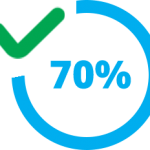
Please find below a detailed update for 2017 released by our Croatian partner:
Part of our business is keeping up with the ever changing maritime laws and regulations in the region. So with the possibility of some important changes to charter tax potentially being instated this year, we’ve been keen to inform everyone in the industry. We were going to wait until the changes took effect before sending out this update, but after hearing conflicting information from many other people in the industry outside of the country, we decided to send it out early. It covers the main VAT regulations and charter activities in Croatia that are set to change this year. Of course, we will continue to release pertinent information as we learn more from the relevant authorities. The following are the changes we have been informed of that should come into force for the upcoming 2017 season.
VAT and Charter Regulation Changes for 2017:
1. VAT will be charged to all commercial yachts that start charters (embark guests) in 3rd countries, proportionate to the time spent in Croatia. For instance, if a yacht embarks guests in Montenegro and comes to Croatia for 6 days, charter guests will need to pay Croatian VAT for 6 days.
2. All non-EU flagged commercial yachts will be allowed to perform charters in Croatia, but will be required to obtain a charter license. There is no longer a limit on the yacht’s length in order to perform charters in Croatia. The license will be valid for the calendar year. The number of licenses issued might be limited based on the Croatian market supply situation. Please note from the above info, ALL non-EU flagged commercial yachts will be able to start charters in Croatia if they obtain a charter license and have a charter and VAT representative!
3. Commercial yacht owners and owning companies are allowed to perform charters in Croatia, either through charter companies / ship agents or if they open their own charter company in Croatia.
4. Commercial yacht owners and owning companies from the EU are NOT obliged to have a VAT and fiscal representative in Croatia, while yacht owning companies from non-EU countries ARE obliged to have a VAT and fiscal representative in Croatia.
5. Private yachts will still be able to embark and disembark their guests in Croatia regardless of flag. In cases where the owner and family members are not onboard, the Captain will have to have an authorized list of people with: 1) names of guests and, 2) length of time that these guests will spend on the yacht. This list of people will have to be authorized by the Captain’s signature and the yacht’s stamp.
6. VAT for charter activities in Croatia is still 13% for weekly charters and 25% for daily charters.
As soon as the administration finalizes and publishes the relevant information under points 1 and 2 above, we will inform you immediately. Meanwhile, if you have any questions, please do not hesitate to contact us at any time
Advice: if you are coming to Croatia this season and plan on having a busy charter season, you should start preparing NOW.
Thank you for your time and attention. All the best and we look forward to hearing from you soon.


